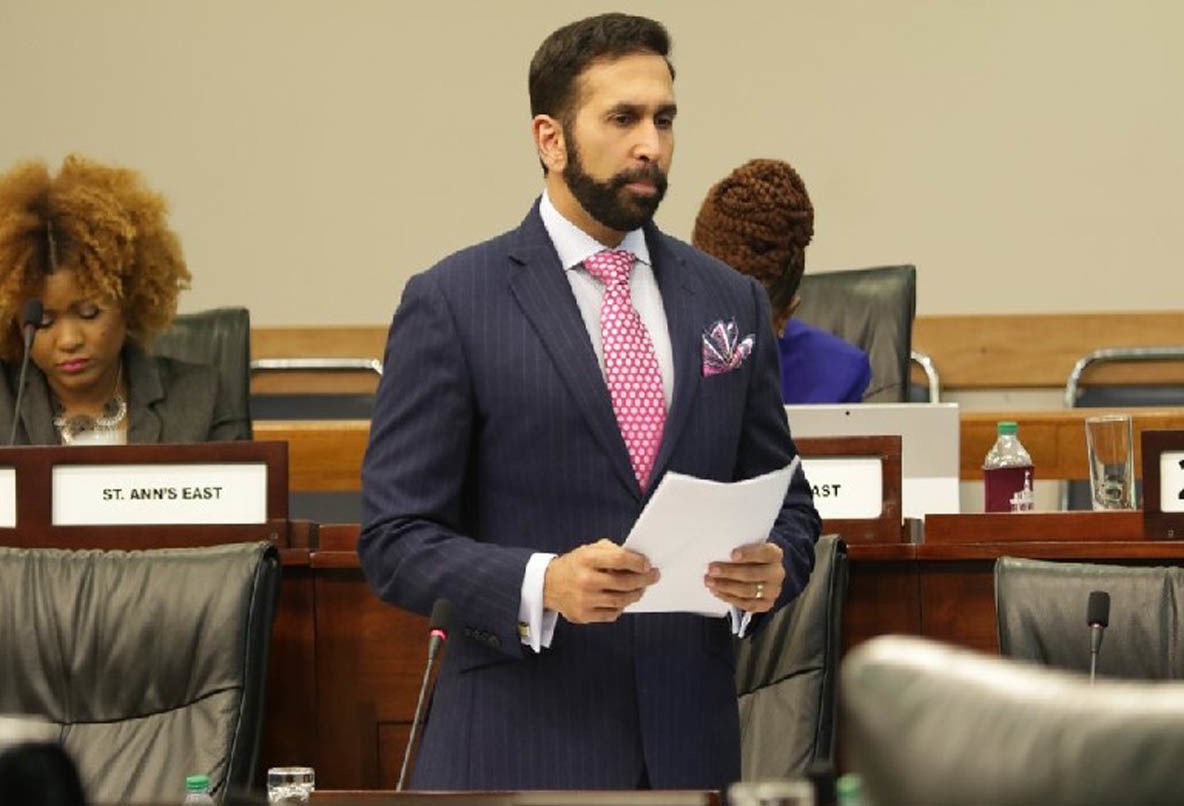(Trinidad Guardian) Attorney General Faris Al-Rawi is under fire from several quarters after the collapse of the Police Service Commission (PSC) left behind a tangled mess. The AG is also under heavy public scrutiny for a seemingly failed selection process for an acting Commissioner of Police and CoP, and the ongoing legal matters involving Gary Griffith, the PSC, former attorney general Anand Ramlogan and the Government.
Questions have also been asked about the Legal Notice 183 (2021) which was compared to the infamous Section 34 under the People’s Partnership government and seemed to be specifically drafted with one person in mind. Controversy surrounding Section 34 led to then justice minister Herbert Volney having to demit office.
Several legal luminaries and key office holders spoke with Guardian Media about the storm brewing for Al-Rawi and the questionable legal notice.
Attorneys Dave Persad and Martin George, as well as former PSC chairman Dr Ramesh Deosaran and political scientist Prof Hamid Ghany said the AG must be held to account for Legal Notice 183 (2021). The commentators believe it was a poorly drafted piece of legislation that appeared to compromise the selection process for a commissioner of police.
According to Deosaran, there is a political and moral obligation for Prime Minister Dr Keith Rowley and the Attorney General to account for inserting the notice he labelled “suspicious” and “confusing”.
“Given the complete collapse of the PSC, the confusing, invalid bits of related legislation by Government and the great loss of public confidence in several state institutions, the Government in the first place must now propose a serious review of the legislative and administrative framework (Act No 6 of 2006) for the powers of the police commissioner, the manner of his or her appointment, the political role of Parliament, the role of the president and whether or not this country really needs an inflated structure like the PSC,” Deosaran said.
If the Government refuses to do what is now required, then the Opposition should know what its constitutional obligation is, Deosaran added.
He said the urgency of this requirement also flows from the PM’s recent public statement that the present PSC legislation is “worse” than it was before 2006 when the PM had a direct veto over the appointment of a CoP.
“Given widespread public worry, the PM should make an announcement to this effect as soon as possible (a review of the legislative and administrative framework). The AG Faris Al-Rawi should not stand in the way of this overhaul. To do otherwise, would merely aggravate the ‘error’ as admitted by the PM and the entire mishandling of the process for appointing a CoP,” Deosaran said.
While we have now passed the stage of blaming the PSC chairman or its members, he said, there is at least “a political and moral obligation for the PM and AG to also account for inserting the confusing Legal Notice 183 with its suspicious Clause 4 and consequent political implications.”
There are too many serious unanswered questions, he said. “Who really advised PSC Chairman Bliss Seepersad to bypass the views of her fellow commissioners and take certain actions, some of which are now costing taxpayers? Who was the invisible hand?” he asked.
“Regardless of what interpretation one may put on Legal Notice 183 of 2021, the bottom line is that the AG is individually responsible for it. That individual ministerial responsibility attaches to him regardless of how many senior counsels were involved in drafting it for him,” said political scientist and Sunday Guardian columnist Prof Hamid Ghany.
As a Minister, Ghany said, Al-Rawi is entitled to departmental advice, “however, only he alone takes responsibility if there is policy error under the culpability rule of the constitutional doctrine of individual ministerial responsibility. He may take the view that he is an attorney acting on instructions, but at the end of the day, only he is ministerially responsible for the policy positions of the Ministry of the Attorney General.
“Furthermore, he is no ordinary Minister because without his office there can be no Cabinet.”



